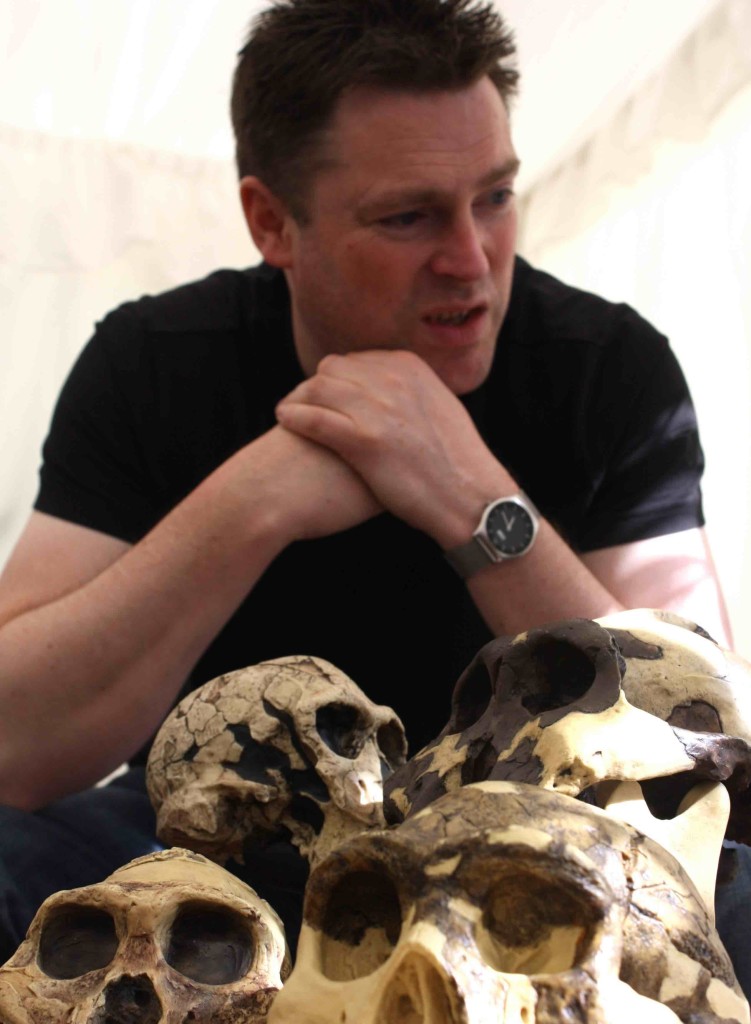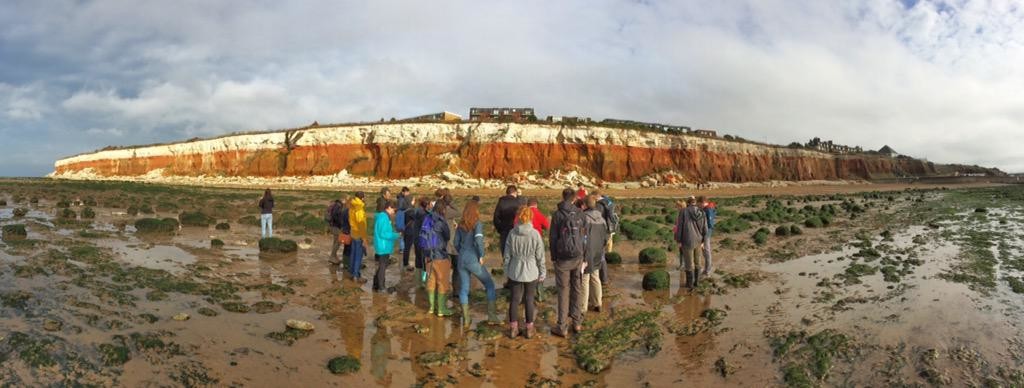 Professor Mark Maslin is based in the Geography Department at University College London. He is the Director of the £15 million London NERC Doctoral Training Programme; which every year supports and trains 35 PhD students in environmental science. Maslin is a leading scientist with particular expertise in global and regional climatic change and has publish over 145 papers in journals such as Science, Nature, The Lancet and Nature Climate Change.
Professor Mark Maslin is based in the Geography Department at University College London. He is the Director of the £15 million London NERC Doctoral Training Programme; which every year supports and trains 35 PhD students in environmental science. Maslin is a leading scientist with particular expertise in global and regional climatic change and has publish over 145 papers in journals such as Science, Nature, The Lancet and Nature Climate Change.
One common perception of studying for a PhD is that they can be a lonely struggle to prove one’s worthiness of being an academic. A Darwinian process where only the fittest, strongest and luckiest survive. Whereas modern PhD programmes should be about nurturing talented students and providing them with skills so they can go beyond just academia. In the London Natural Environment Research Council (NERC) Doctoral Training Programme (DTP) we decided to do things rather differently to achieve these objectives. We select the best 35 environmental science students and then we train them. It is only after the first Term that the students chose their PhD project. This means supervisors must advertise their project as well as meeting and convincing the students of the value of their particular project. The choice is huge as we cover 9 major institutions in London* and have over 350 eligible supervisors on our books. Students are also strongly encouraged to take a lead in developing their own projects. This is a two-way process with the supervisor(s) and it empowers the student with consequent benefits for the design and excitement factor of projects.

Photo by Waheed Arshad.
The UK Research Councils have realised that the majority of our PhD students do not end up as academics. Instead most have fulfilling careers within Government, working for NGOs or business and some even set up their own companies. Hence our PhD programme has a training focus on transferable skills and developing a wide knowledge of environmental sciences beyond their PhD focus. We also remind our students that we expect most of them to go beyond academia and enhance UK PLC. As part of our training programme in the first term based in the wonderful surroundings of the Natural History Museum, we teach transferable skills which range from time management to ethics; grant writing to fieldwork planning. We were also frustrated that many PhD students were never taught how to write academic or popular science; nor were they taught the politics of scientific publishing. So having taught these skills for many years to my own PhD students – I teach these skills to our DTP students. I also use the excellent methods developed by ClimateSnack (thanks to Mathew Stiller-Reeve and colleagues) to help the students learn how to write a science blog. I give a lecture on structure, content and language. The students then write their first rough draft of their blog, read it out to a small group of students to receive supportive peer-peer feedback to improve their blogs. The next draft is submitted to Claire Asher (the DTP’s Innovation Officer) and myself for additional comments. The final version is published on our web site and now also kindly hosted by SciSnack. We are very interested to hear what you think of them, so please add comments.
Returning to our new London experiment, at the heart of our PhD programme is an ambitious support structure, which ensures that no student feels isolated or neglected. First we build a strong cohort as we see peer-to-peer support as essential for each student’s development. We have 35 students in each cohort, they train together for the first six months and at the end they spend 10 days on a field-class they have designed in California. We ensure that all PhDs have a supervisory team with members who are often based at different partner institutions thereby creating varied networks and support structures. Of course, universities and their departments have their own independent graduate tutor system to protect and support students. These systems are complemented by the activities of our DTP office and we maintain strong regular contact with all students and supervisors to ensure that every student is supported all the way through their four years of study. Our PhDs are still hard work and require plenty of dedication and commitment but we are confident that our new structure means each student starts the PhD of their choice with ample support throughout their studies. After four years they will have all the skills required to survive in the big bad world.
* There are 9 Academic Partners in the London NERC DTP; UCL, Brunel, Birkbeck, Kew, Kings College London, Institute of Zoology, Natural History Museum, Queen Mary and Royal Holloway. In addition there are over 40 associate partners that include; Astrium, British Antarctic Survey, Department of Health, Environment Agency, Meteorological Office, Microsoft, Pfizer, Thames Water, and Willis Re.
(Photo on Homepage by Rachel Devine)







